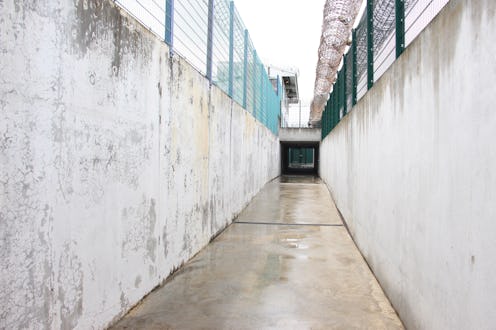News
How Many People Commit Suicide In Jail?
On July 13, three days after being arrested for allegedly assaulting a police officer who pulled her over for not using a turn signal, 28-year-old Sandra Bland was found dead in her cell at Waller County jail. According to the Harris County medical examiner, Bland committed suicide by hanging herself with a plastic bag. On Wednesday, authorities released forms allegedly filled out by Bland, in which questions about having depression and suicidal thoughts were marked "yes," but other documents showed queries concerning a history of mental illness and attempted suicide were marked "no." At a news conference earlier this week, Waller County District Attorney Elton Mathis stated Bland's case would be handled "as it would be in a murder investigation" given the mysterious circumstances that led to her arrest and death. Mathis went on to state that it was "too early to make any kind of determination that this was a suicide or a murder." So, is suicide common in jail?
In 2010, the U.S. Department of Justice reported that suicide was the leading cause of death in local jails and prisons. Of 918 jail deaths that year, 305 had been ruled suicide. The report also found that between 2000 and 2010, half of all jail suicides occurred within seven days of a person entering jail. In an interview with Lindsay M. Hayes, project director of the National Center on Institutions and Alternatives, The Washington Post reported in 2011, more than a third of the 885 jail deaths in 2011 were ruled suicides. There were 43 jail suicides for every 100,000 inmates nationwide and 310 of 885 deaths were suicide, which was nearly three times the rate of prison suicides. While the rate in 2011 is significantly lower than it was in 1986, which saw 107 deaths in every 100,000 inmates, the number of suicides that year was up 18 percent from 2009.
In a 2013 interview with HLN TV, law enforcement analyst Mike Brooks stated that in prisons, suicides are "not uncommon," and "hanging is a way that inmates kill themselves." When asked how inmates killed themselves by hanging, Brooks answered they had few options, although using a bed sheet was not uncommon. He further elaborated, "Hanging is a method to kill yourself while you're in prison, if you're not under any kind of suicide watch or other special circumstances." As for the severity of the crimes of suicidal inmates, Brooks stated that inmates would kill themselves regardless of whether they had a lifelong sentence and or was convicted on a small misdemeanor charge. With her death still under investigation, it's far too early for speculators to decisively claim Bland committed suicide, but if she did, she would not be the first jail inmate to do so over minor charges.
Jail documents claim Bland attempted suicide, and in a recent Facebook status, Bland opened up about struggling with depression and post-traumatic stress disorder. However, she had not been under suicide watch or any other "special circumstances" to accommodate her mental condition. Still, despite claims Bland may not have been fully stable at the time of her arrest, friends and family to Bland have disputed officials' accounts. With a new, promising job at her alma mater, Prairie View A&M University, those close to her have stated that she displayed no suicide warning signs.
At any rate, the documents filled out for Bland following her death conflict with each other. Some reported that Bland's attempted suicide occurred in 2014, while others claimed she attempted suicide earlier this year. Ultimately, it is premature for anyone to decisively rule that Bland's death was suicide or murder. However, in either case, since the jail has at least admitted it had knowledge of Bland's alleged mental condition, the treatment Bland faced behind bars, and certainly during her arrest, is questionable to say the least.
Images: Getty Images (1)
